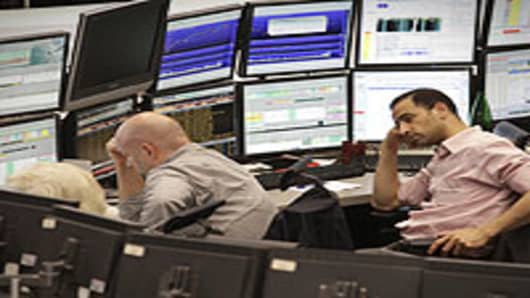The US investigation into alleged manipulation of interbank lending rates is focusing on possible violations of a commodities law that has previously been used to send financial executives to prison.
According to people familiar with the probe into the setting of London and Tokyo interbank offered rates, U.S. authorities are modeling their investigation on an earlier prosecution of three energy companies for violations of the Commodity Exchange Act, which resulted in criminal settlements and prison terms of up to 14 years. Under the act, it is illegal to transmit a false report that would affect the price of a commodity.
The interbank lending probe, led by the U.S. Commodity Futures Trading Commission and the Department of Justice, is examining possible collusion between traders and bank treasury departments in 2007 and 2008. It has also drawn in investigators from the UK, Japan and the European Union.
In its seven-year investigation into US energy trading companies, the DoJ filed criminal charges against nearly two dozen traders from numerous oil companies. Prosecutors alleged that they submitted false trade data to Platts and other publishers – whose indices are used to price and settle physical and financial derivative natural gas transactions – to benefit their positions.
American Electric Power, Mirant Energy Trading and Williams Power agreed to deferred prosecution agreements in 2005-07, while the criminal trials extended into 2008. Under the deferred prosecution agreements, the federal government agreed not to file criminal charges provided the companies complied with settlement terms and paid a total of $91m.
The CFTC, which regulates interest rate futures and swaps, also reached civil settlements with more than 20 energy companies totaling $300 million.
In the current investigation, authorities are examining whether Libor, the reference point for $350,000 billion in contracts, and Tibor, the smaller Tokyo-based version, were rigged at the height of the financial crisis. In each case, the rates were set by surveying banks about the rates at which they could borrow in various currencies. The results were then averaged, with the top and bottom rates thrown out.
Investigators are also looking at potential antitrust violations.
According to people familiar with the probe, the CFTC is examining whether traders placed bets on future yen and dollar rates and colluded with bank treasury departments, who help set the Libor index, to move the rates in their direction. It is also looking at whether some banks lowballed their Libor submissions to make themselves appear stronger.
All 16 banks on the London panel in 2007 and 2008 have received information requests.


